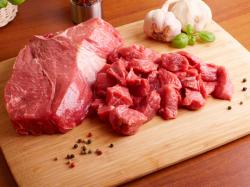International Agency For Research On Cancer Evaluates Red & Processed Meat – Backgrounder
August 19, 2015 | 2 min to read

The potential relationship between red meat consumption and cancer risk continues to be a controversial topic debated in the scientific community, among authoritative bodies, and via social and traditional media channels. In November 2014, the World Health Organization’s (WHO) International Agency for Research on Cancer (IARC) announced it will be evaluating red and processed meat with regard to carcinogenicity. A working group of international cancer research experts are currently reviewing the available evidence regarding any associations between red and processed meat consumption and the risk of developing various types of cancer. In October 2015, this group will convene for an eight-day meeting to come to a collective decision on the potential carcinogenicity of red and processed meat. Following this meeting, IARC will publish a final decision (referred to as an IARC monograph) regarding the classification of red and processed meats as a carcinogen and the degree of certainty (definite, probable, possible, not classifiable, probably not) supported by the evidence. The exact timing of the Monograph release is currently unknown, though anticipated to be sometime in 2016. The Beef Checkoff is working to prepare research summaries and scientific references for submission to IARC, including comprehensive, systematic evidence reviews to ensure that the balance of evidence is considered by the Working Group. Given that cancer is a topic of public interest and an issue that hits very close to home for many Americans, the Beef Checkoff is also developing education and communication resources that can provide important context and balanced perspectives on the role of diet and lifestyles in the development of cancer for both consumer influencers (registered dietitians, medical professionals and academics) as well as general consumer audiences. As IARC is a well-respected global agency, the evaluation presents an opportunity for the beef community to dispel the deep-seeded myth that red meat independently plays a role in the development of cancer.
To read the rest of the story, please go to: Beef Issues Quarterly
